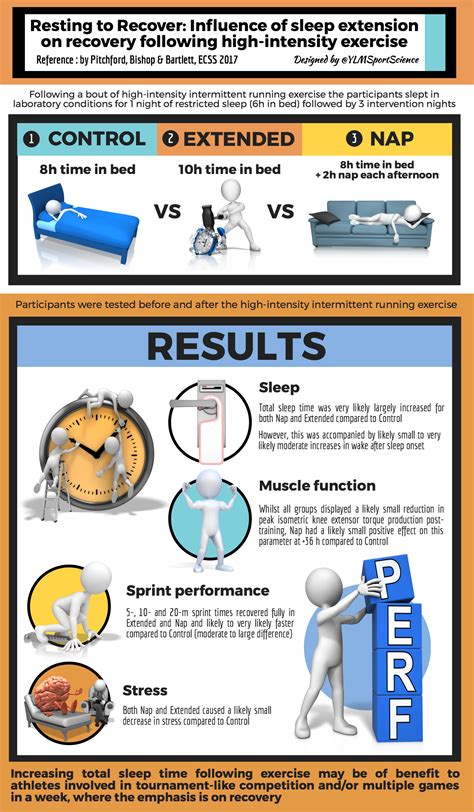How to optimize sleep & recovery for maximal strength gains & reduced fatigue?

The Crucial Link Between Sleep, Recovery, and Strength
For anyone serious about building strength, reducing fatigue, and maximizing their athletic potential, the focus often falls on training protocols, rep schemes, and nutritional intake. However, one of the most underestimated pillars of progress is sleep and recovery. Without adequate rest and strategic recovery, even the most meticulously planned training programs can fall short, leading to plateaus, increased injury risk, and persistent fatigue.
Your body doesn’t build muscle or get stronger during your workout; it does so during the recovery period that follows. Sleep is the cornerstone of this process, a time when your body repairs damaged tissues, synthesizes new proteins, and replenishes energy stores. Neglecting it is akin to training with the brakes on.

The Science of Sleep: More Than Just Rest
Sleep is not a passive state but a highly active and complex biological process. It’s during various sleep stages that critical physiological adaptations for strength and recovery occur.
Deep Sleep: The Muscle Repair Powerhouse
Non-REM deep sleep (stages N3/N4) is arguably the most vital for physical recovery. During this phase, your body releases a surge of Growth Hormone (GH), essential for tissue repair, muscle growth, and fat metabolism. Cellular regeneration accelerates, and the body works overtime to mend the microscopic tears in muscle fibers caused by intense training. Insufficient deep sleep directly impacts your body’s ability to recover and adapt to training stress.
REM Sleep: Mental Restoration and Skill Consolidation
Rapid Eye Movement (REM) sleep, while less directly involved in physical repair, is crucial for cognitive function, emotional regulation, and motor skill consolidation. For athletes, this means better focus, improved decision-making during workouts, and enhanced learning of complex movements. A well-rested mind is just as important as a well-rested body for peak performance.

Practical Strategies for Optimal Sleep Hygiene
Achieving sufficient, high-quality sleep requires a proactive approach. Here are actionable steps to optimize your sleep environment and habits:
Establish a Consistent Sleep Schedule
Go to bed and wake up at roughly the same time every day, even on weekends. This helps regulate your body’s natural circadian rhythm, making it easier to fall asleep and wake up feeling refreshed.
Create a Pre-Sleep Routine
Wind down for 30-60 minutes before bed. This could include reading, light stretching, a warm bath, or meditation. Avoid mentally stimulating activities like work or intense discussions.
Optimize Your Sleep Environment
Ensure your bedroom is dark, quiet, and cool (ideally 60-67°F or 15-19°C). Invest in comfortable bedding and, if necessary, use blackout curtains, earplugs, or a white noise machine.
Mind Your Diet and Caffeine Intake
Avoid heavy meals, excessive liquids, caffeine, and alcohol close to bedtime. Caffeine has a long half-life and can disrupt sleep hours after consumption. Alcohol might make you feel sleepy but fragments sleep quality.
Limit Blue Light Exposure
Electronic screens (phones, tablets, computers, TVs) emit blue light that interferes with melatonin production, the hormone that signals your body it’s time to sleep. Aim to stop screen use 1-2 hours before bed or use blue light filtering glasses.

Beyond Sleep: Comprehensive Recovery Tactics
While sleep is paramount, it’s part of a broader recovery ecosystem. Incorporating these strategies will further enhance your body’s ability to adapt and perform:
Prioritize Nutrient-Dense Nutrition
Fuel your body with adequate protein (for muscle repair), complex carbohydrates (for energy replenishment), and healthy fats. Micronutrients from fruits and vegetables play a crucial role in reducing inflammation and supporting overall bodily functions.
Stay Adequately Hydrated
Water is essential for nearly every bodily function, including nutrient transport, waste removal, and joint lubrication. Dehydration can impair performance and recovery.
Incorporate Active Recovery
Light activities like walking, cycling, or swimming on rest days can increase blood flow to muscles, helping to flush out metabolic waste and deliver nutrients without adding significant stress.
Manage Stress Effectively
Chronic mental stress elevates cortisol levels, which can hinder recovery, impair sleep, and even lead to muscle breakdown. Practice stress-reduction techniques like meditation, deep breathing, or spending time in nature.
Consider Targeted Supplementation
Certain supplements like magnesium (supports muscle function and sleep), creatine (enhances performance and recovery), or omega-3 fatty acids (reduces inflammation) can complement a solid diet, but should not replace whole foods.

The Direct Impact on Strength Gains and Fatigue
Optimizing sleep and recovery directly translates into tangible benefits for your strength training journey:
- Increased Strength and Performance: A well-rested body performs better, lifts more, and maintains higher intensity throughout workouts.
- Accelerated Muscle Growth: Proper recovery allows for optimal protein synthesis and growth hormone release, leading to faster and more efficient muscle hypertrophy.
- Reduced Fatigue: By allowing your central nervous system and muscles to fully recover, you’ll experience less persistent fatigue, leading to more consistent training and higher quality sessions.
- Lower Injury Risk: Overtraining and inadequate recovery weaken the body, making it more susceptible to strains, sprains, and other injuries.
- Improved Hormonal Balance: Optimal sleep helps regulate hormones like testosterone (anabolic) and cortisol (catabolic), creating an environment conducive to muscle building and fat loss.

Conclusion: Make Recovery a Pillar of Your Training
Treat sleep and recovery with the same seriousness as your training and nutrition. They are not optional extras but fundamental components of any successful strength-building regimen. By consistently prioritizing high-quality sleep and employing comprehensive recovery strategies, you unlock your body’s full potential, ensuring maximal strength gains, sustained energy, and a significant reduction in training-induced fatigue. Remember, the strongest athletes aren’t just those who train the hardest; they’re often those who recover the smartest.







